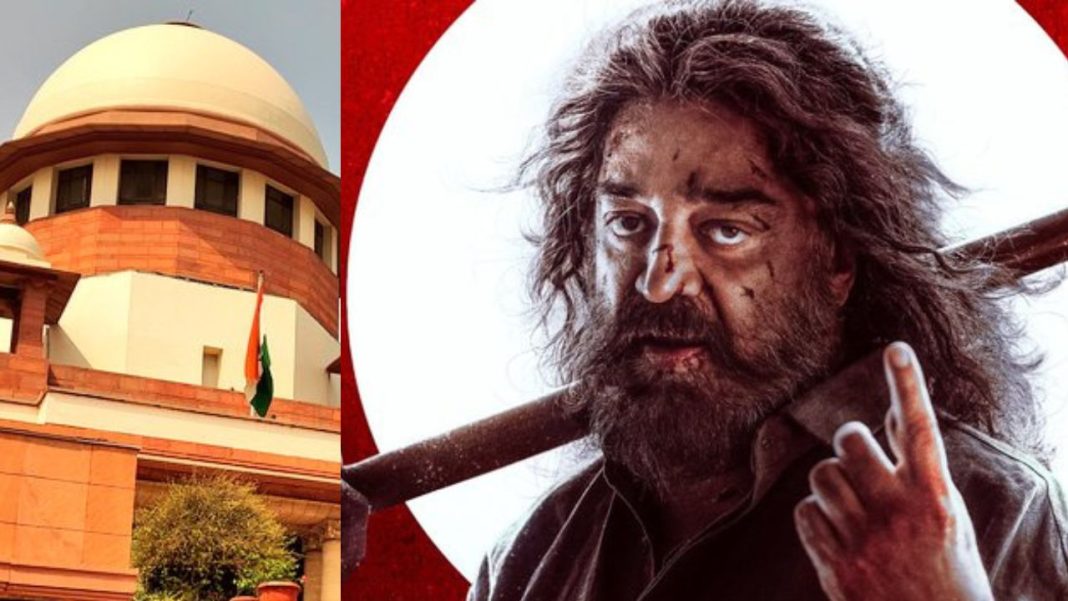The ban on Kamal Hassan’s ‘Thug Life’ movie in Karnataka is addressed by the Supreme Court through an official notice issued on Tuesday. The Supreme Court has severely criticised the threat of banning the release of the film over a controversial opinion spoken by Kamal Hassan.
Rule of law demands that any film which has a CBFC certificate must be released and the State has to ensure its screening, the Court said.
— Live Law (@LiveLawIndia) June 17, 2025
Read more: https://t.co/JrpimZRRZp #SupremeCourtofIndia #ThugLife #Karnataka #KamalHaasan pic.twitter.com/TPeag2aYx2
A bench comprising Justice Ujjal Bhuyan and Justice Manmohan was hearing a PIL filed by Mahesh Reddy, requesting for the release of the movie ‘Thug Life’ that failed to release in the state of Karnataka after a group threatened to burn down the theaters if screened. The threat followed after actor Kamal Hassan’s statement on the origin of Kannada language, triggering the subsequent ban.
Read Also: Thug Life’s Karnataka Release in question – Kamal’s statement continues to smoke
The bench insisted that mob threats and warned the hooligans are not responsible to make any decision “If someone has made a statement, you counter it with another statement. You cannot threaten to burn down theatres,” the bench remarked.
No need to apologize
— Truth Never Fails (@indiankamal7) June 3, 2025
We can move to supreme court
Even if the movie not released in karnataka we never mind
We're with you sir @ikamalhaasan#WeStandWithKamalHaasan#KamalHaasan𓃵 #ThugLife pic.twitter.com/et9WSPgtk5
If Kamal Hassan’s remarks are disagreeable then the civilians and general public have the right to disagree, added the Supreme Court. “If enlightened people of Karnataka and Bengaluru believe his statement was wrong, they can issue a statement saying so. Why threaten to burn down cinemas?”
The supreme court also transferred the plea made by the film’s producer and questioned the role of the High Court in demanding the actor issue an apology to resolve the issue. “There is something wrong with the system when one person makes a statement and everyone gets involved. Why should the High Court say ‘express an apology’? That is not its role,” the SC said.
The notice also said that any film that is certified under the Central Board of Film Certification (CBFC), must be allowed to be released in the state. The bench also stated that it is up to the people to watch the film or not, the court will not force the people to watch, but the movie must be released.



